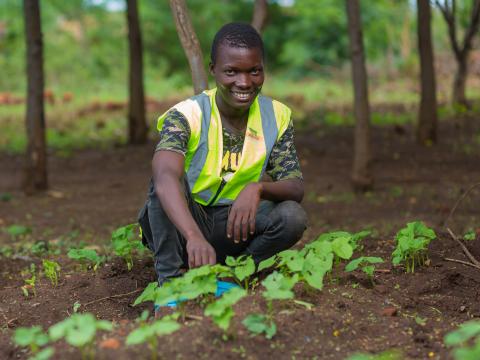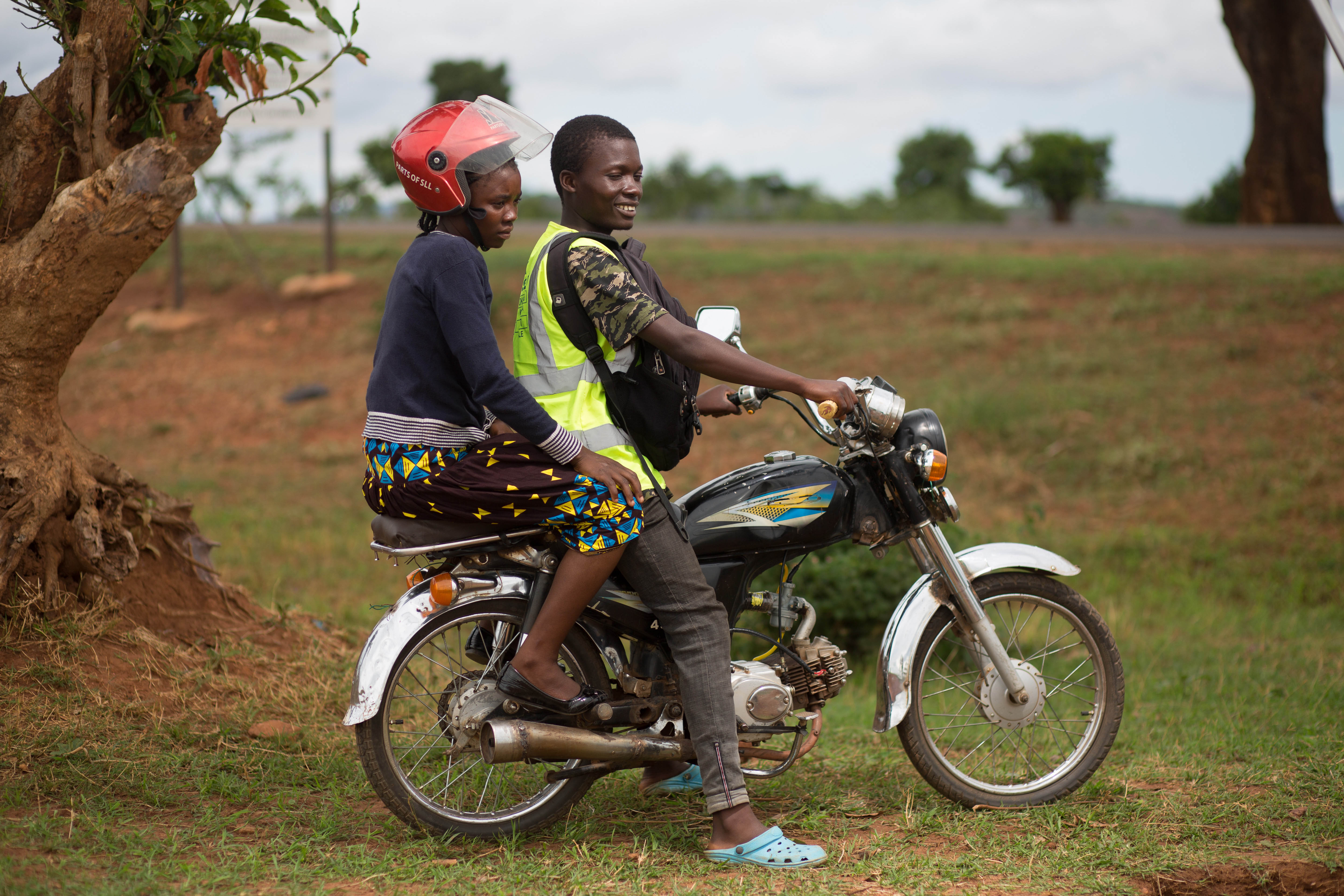World Vision S4T initiatives turns around Chionetsero’s economic fortunes

Chionetselo Kwanjana has always wanted to go to university and study banking. The 21 year old boy comes from Dayenda village in Traditional Authority Chakhadza, Dowa in Central Region of Malawi.
‘‘I had always dreamt of working for Standard Bank or National Bank of Malawi. The working environment in banks generally fascinates me,” says Chionetsero.
Unfortunately, when he wrote his Malawi School Certificate of Education (MSCE) in 2018, he did not score enough points to secure him a place at any of the public universities. This shattered his dream of working in the banking sector.
“When I failed to make it to the public university, I knew my future had been doomed,” says Chionetsero, the fourth born in a family of seven.
His poor parents could not afford to send him back to school to repeat form 4. If fact, they barely paid fees for his secondary education.
Chionetsero recalls that he almost dropped out of school whilst in Form 3 if it were not for the intervention of the World Vision through its programmes such as the school Savings for Transformation (S4T), organic farming trainings and business skills trainings, which he had attended.
Thus, he did not despair after failing to achieve his goal of going to university.
‘‘I would like to pay homage to World Vision for giving me a lifeline through the Mafosha Youths Club, which I joined while I was still a student at Tchawale Community Day Secondary School,” he says.
Through the club, Chionetsero and several others received training in organic farming and business management skills, which have helped them find an alternative source of income to finance completion of their education. In his own words, Chionetsero says World Vision programme has transformed his life.
“After completing the organic farming training, I put to use the knowledge gained. I cultivated beans, onions and maize, which I sold at more than $100. I did not even require to spray my harvests with pesticides from the shops. I made my own pesticides using skills gained from training provided by world vision,” he narrates.
With skyrocketing prices of fertilizer on the market, Chionetsero says he just prepares his own manure, which is working wonders in his maize garden.
The enterprising young man says he ploughed the $100 into eggs selling business in an effort to diversify.
“I thought it wise to diversify. World Vision trained us in a lot of business skills. So, I had to put them to use. So, apart from cultivating onion, maize and beans, I decided to venture into eggs business. I made over $250 from egg sales and this enabled me to buy a motorcycle,” narrates Chionetselo who is also into piggery.
Chionetsero says the motorcycle has turned into a magic wand. It is helping him provide him easy transportation whenever he wants to go and buy materials for his farming business and groceries for his business.

He opened a shop where he sells eggs and other groceries. He also uses the motorcycle for kabaza transport business. All these are generating money for him.
‘‘While I struggled with my own education, I am able to fend for my younger brother, Richard, who is currently in Form 3 at Tchawale Community Day Secondary School. I am able to provide him with exercise books, clothes and other materials he needs for school,” he says.
According to Carolyn Lumbalu, development facilitator for Tiwerenge 365 and Youth Ready Project for Kasangadzi AP, interventions implemented in her catchment area have had a very big impact on the beneficiaries, especially the youths.
Lumbalu says when beneficiaries such as Chionetsero are able to narrate the benefits they have derived from the project, it means the interventions are achieving intended purpose.
‘‘The goal of Kasangadzi school youth ready project is to enhance literacy , life skills and increase access to youth economic opportunity (ELLYEO) amongst 200 in school children in primary and secondary and 60 drop outs aged 12 and 25 years who are the most vulnerable in Kasangadzi Area Program,” she explains.
Chionetsero is one of the young people who benefitted from this project. According to Lumbalu, the project trains adolescents so that they be ready for economic activities.
“To date, 647 (301 girls and 67 RCs) in and out of school youths are participating in economic skills savings for transformation groups. They are running small scale businesses and have livestock assets like cows, pigs, chickens and goats’’ she said.